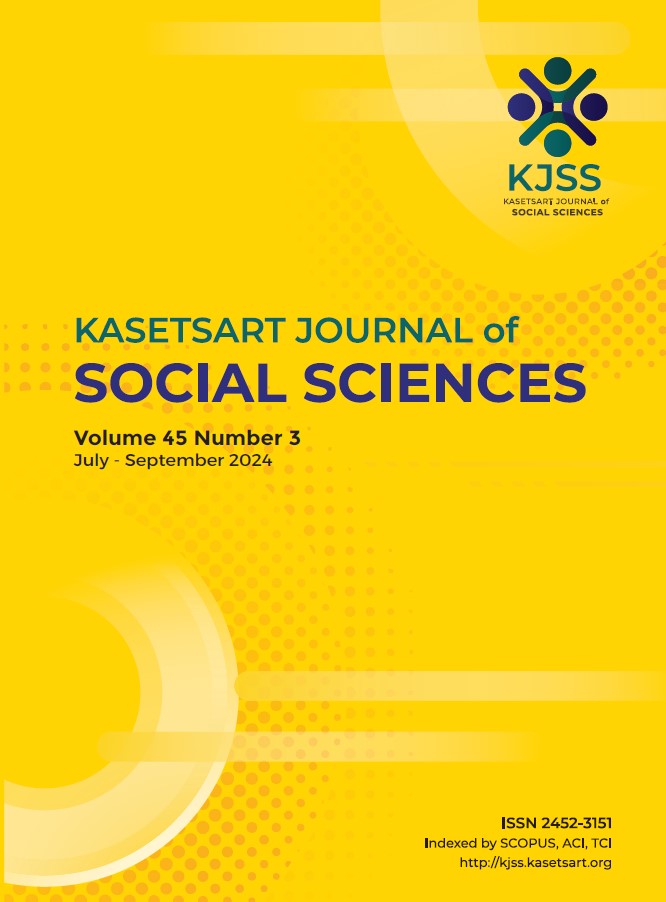The development of instructional model based on design thinking process with family and community engagement to enhance learning and innovation skills for senior high school students
Keywords:
design thinking process, family and community engagement, instructional model, learning and innovation skillsAbstract
This research aimed to explore the guideline for learning and innovation skills development of senior high school students. The study also aimed to develop and assess the quality of the instructional model. Furthermore, it compared senior high school students’ (11th Graders) learning and innovation skills between post-test and the criterion (70%). The samples consisted of 35 senior high school students (11th Graders), selected through clustered random sampling technique from an extra-large size provincial high school, Thailand. Content analysis, Descriptive statistics, and One-sample t-test were used for data analysis. The findings revealed that: (1) Teachers must act as a facilitator, coach, and mentor to enable students to create innovation. Furthermore, through a community-based career and innovation project, parents and the community members should be involved in learning activities with the school; (2) The instructional model was developed consisting of 4 components: principle, objective, learning activities, and assessment.
The instructional model’s learning activities included six steps: step 1 Empathizing through communication; step 2 Define problem with partners; step 3 Collaborative Ideation with partners; step 4 Create innovation with partners; step 5 Illustrate and Utilize innovation; and step 6 Exhibit innovation culture. The instructional model had the highest level of appropriateness (M = 4.56, SD = 0.10), and its effectiveness index was 0.6584; and (3) senior high school students’ (11th Graders) learning and innovation skills after the instructional model implementation were enhanced and significantly higher than the stated criterion (70%) at a significant level of .01.
Downloads
Published
How to Cite
Issue
Section
License
Copyright (c) 2024 Kasetsart UniversityThis is an open access article under the CC BY-NC-ND license http://creativecommons.org/licenses/by-nc-nd/4.0/










